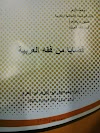Valentine's Day celebrated on February 14, has a long history closely tied to Christian society. The term 'Valentine' is derived from a Saint Valentine priest who courageously opposed the Roman Emperor Claudius's decree prohibiting marriage and engagement. This prohibition arose from the Roman government's difficulties in recruiting young men for military service during a time of war.
The Emperor believed these men's reluctance to leave their loved ones, wives, and families was a significant barrier to military recruitment. Consequently, he enacted a law against marriage, viewing it as an obstacle to the political advancement of Rome. Saint Valentine defied this decree and was executed on February 14, 270 AD. The church later commemorated this date as Valentine's Day, symbolizing the expression of love within Christian communities.
However, advancements in information technology have blurred cultural boundaries, leading to a shared perception of various traditions. As a result, many Muslims have begun to celebrate Valentine's Day in different ways, and numerous Christians also partake in the festivities, often exchanging greetings.
It is essential for Muslims, particularly those who frequently interact with Christians, to exercise caution, as they may inadvertently fall into disbelief if their intentions are misplaced.
As stated in Bughyatul Musytarsyidin, it is clearly explained that:
حاصل ما ذكره العلماء فى التزيي بزي الكفار أنه إما أن يتزيا بزيهم ميلا إلى دينهم وقاصدا التشبه بهم فى شعائر الكفر أو يمشي معهم إلى متعبداتهم فيكفر بذالك فيهما وإما أن لايقصد كذلك بل يقصد التشبه بهم فى شعائر العيد أو التوصل إلى معاملة جائزة معهم فيأثم وإما أن يتفق له من غير قصد فيكره كشد الرداء فى الصلاة
"The essence of what the scholars have mentioned regarding dressing like non-believers is that it can either be done with the intention of leaning towards their religion and aiming to resemble them in their acts of disbelief, which can lead to disbelief, or it can involve accompanying them to their places of worship, which also results in disbelief. Alternatively, one may not have such intentions but instead aims to imitate them in their celebration style or engage in permissible interactions, which would be sinful. Lastly, if it occurs unintentionally, it is considered makruh (discouraged), such as adjusting one's attire during prayer." ('Abdurrahman Ba 'Alawi, Bughyah al-Mustarsyidin, [Beirut, Dar el-Fikr], vol. I, page 528).
However, the current phenomenon is quite different. Most young people celebrate Valentine's Day with various traditions that are not connected to any religious significance. Rarely do they understand the religious implications of Valentine's Day.
The contemporary celebration of Valentine's Day, which has become a tradition among youth and students, often leans towards actions that can be deemed sinful.
For instance, celebrating Valentine's Day by expressing affection in secluded places, engaging in activities that disrupt public order, or even hosting extravagant parties that waste resources are all prohibited in Islam. Anything that can be seen as leading to sinful behaviour is treated as sinful itself.
It is important to note that any celebration of Valentine's Day that pertains to romantic relationships outside of marriage is still not permissible in Islam.









